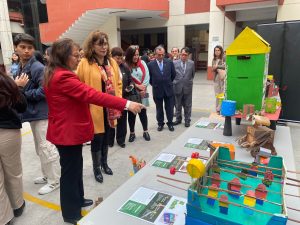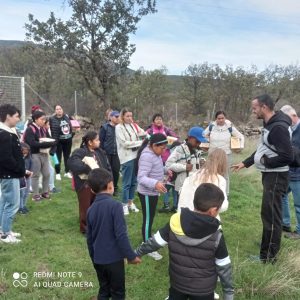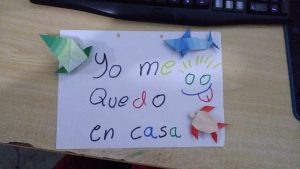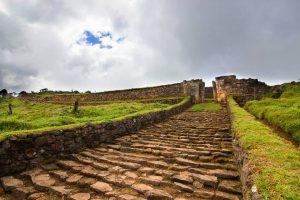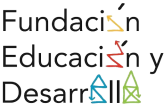Benefits
GAME
"PLAYING IS HEALTHY"
We understand play as a manifestation of the immaturity with which mammals, in general, and human beings in particular, are born. Our very survival requires dependence on the adult. It is others who have to provide us with warmth, food, protection, affection. Once all this is assured, the baby can dedicate itself to exploring and playing. And the more complex the world we must know, the more complex the behavior we must learn. In the case of human beings, psychomotor, linguistic, intellectual and social skills will be very elaborate. Play is, therefore, a necessity for all human beings, it is the natural way of interacting with the world, others and ourselves. For this reason, gambling has been recognized as a right by the UN and has been ratified by more than a hundred countries.
Game Benefits
Health
Contributes to the physical and mental health of children. When we ask children why there are children who do not play, many of them reply that “they must be sick”.
Intelligence
It is necessary in the construction and conservation of new ways of exploring the physical and social worlds and in the discovery of strategies to be better than peers.
Imagination
It increases and stimulates it to create possible worlds in which reality bends to their desires and needs.
Creativity
It encourages creativity in problem solving, in the interpretation of characters and fantastic spaces. Also in the design of original strategies in games and sports.
Sociability
It allows sharing and enriching the scripts of the different playmates. Learn to respect the rules, as well as to generate new ones, modify them and legitimize them. Promotes friendship between players.
Motor skills
Both gross and fine motor skills benefit from the endless and repeated activities that games set in motion.
Curious Fact
In the Piura Region, our first playgroups were established on the coast, in the cities of Piura, Castilla, Sullana, Tambo Grande, etc. Playgroups were also opened in the mountains, especially in Ayabaca and Huancabamba. In July 2016 we were invited to the inauguration of a new premises, built in the district of Sóndor, in Tacarpo, Huancabamba by the fathers of the children to host the playgroup. It was built of mud and straw, like the vast majority of buildings in the mountains, with several spacious rooms and next to the medical post. At the inaugural session I verified that they were especially attentive to my speech that he had asked me to say to start the act. They explained to me later that they had been told that I spoke Spanish, but “who knows what Spanish I spoke!”. They later assured me, somewhat surprised, that I was quite well understood. They were especially proud of their work because the building had been the product of a minka (collective, unpaid work of the Inca communities) in which all the fathers had participated. We toast with rompope, a traditional drink made with cane liquor, egg yolks and whites whipped to stiff peaks. Its preparation was also a collective work of the fathers, each one beating egg whites on their plate to incorporate them into the collective preparation. Meanwhile, in the field in front of the play building, boys and girls enjoyed playing mommy, with toy trucks and cars, or with an impromptu soccer game. This is an excellent example of the commitment of families in defending the right to play of their sons and daughters.
Jugar es Sano
We understand play as a manifestation of the immaturity with which mammals, in general, and human beings in particular, are born. Our very survival requires dependence on the adult. It is others who have to provide us with warmth, food, protection, affection. Once all this is assured, the baby can dedicate itself to exploring and playing. And the more complex the world we must know, the more complex the behavior we must learn. In the case of human beings, psychomotor, linguistic, intellectual and social skills will be very elaborate. Play is, therefore, a necessity for all human beings, it is the natural way of interacting with the world, others and ourselves. For this reason, gambling has been recognized as a right by the UN and has been ratified by more than a hundred countries.

Game Benefits
Health
Contributes to the physical and mental health of children. When we ask children why there are children who do not play, many of them reply that “they must be sick”.
Intelligence
It is necessary in the construction and conservation of new ways of exploring the physical and social worlds and in the discovery of strategies to be better than peers.
Imagination
It increases and stimulates it to create possible worlds in which reality bends to their desires and needs.
Creativity
It encourages creativity in problem solving, in the interpretation of characters and fantastic spaces. Also in the design of original strategies in games and sports.
Sociability
It allows sharing and enriching the scripts of the different playmates. Learn to respect the rules, as well as to generate new ones, modify them and legitimize them. Promotes friendship between players.
Motor skills
Both gross and fine motor skills benefit from the endless and repeated activities that games set in motion.
Curious Fact
In the Piura Region, our first playgroups were established on the coast, in the cities of Piura, Castilla, Sullana, Tambo Grande, etc. Playgroups were also opened in the mountains, especially in Ayabaca and Huancabamba. In July 2016 we were invited to the inauguration of a new premises, built in the district of Sóndor, in Tacarpo, Huancabamba by the fathers of the children to host the playgroup. It was built of mud and straw, like the vast majority of buildings in the mountains, with several spacious rooms and next to the medical post. At the inaugural session I verified that they were especially attentive to my speech that he had asked me to say to start the act. They explained to me later that they had been told that I spoke Spanish, but “who knows what Spanish I spoke!”. They later assured me, somewhat surprised, that I was quite well understood. They were especially proud of their work because the building had been the product of a minka (collective, unpaid work of the Inca communities) in which all the fathers had participated. We toast with rompope, a traditional drink made with cane liquor, egg yolks and whites whipped to stiff peaks. Its preparation was also a collective work of the fathers, each one beating egg whites on their plate to incorporate them into the collective preparation. Meanwhile, in the field in front of the play building, boys and girls enjoyed playing mommy, with toy trucks and cars, or with an impromptu soccer game. This is an excellent example of the commitment of families in defending the right to play of their sons and daughters.
Hablemos del Juego
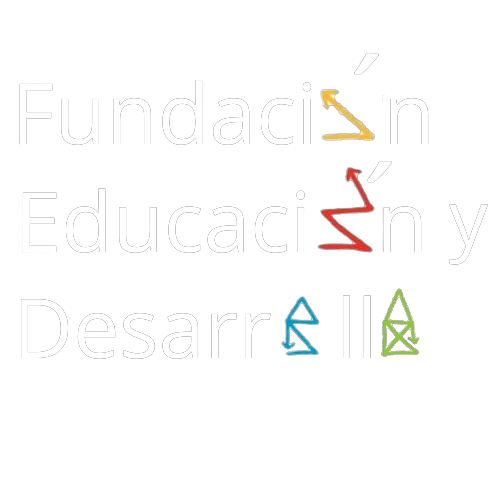
Know us:
It was established in Madrid on February 8, 1994 and registered in the registry of foundations of the Ministry of Education with No. 247 by ministerial order; on April 6 of the same year it was published in the state bulletin.
The last:
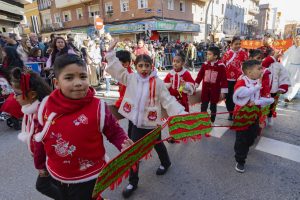
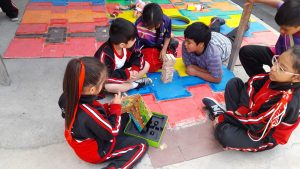
School Playgroups and their impact on coexistence between students
